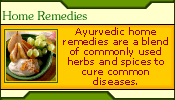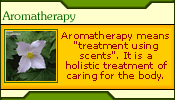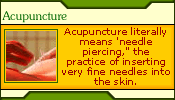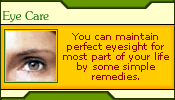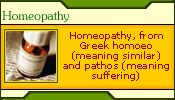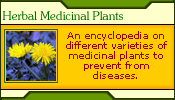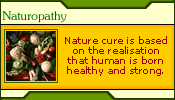|
Vitamin E is essential for normal reproductory functions, fertility
and physical vigour. It prevents unsaturated fatty acids, sex hormones
and fat soluble vitamins from being destroyed in the body by oxygen.
It dilutes blood vessels and improves circulation. It is essential
for the prevention of heart diseases, asthma, arthritis, and many
other conditions. It is available in wheat or cereals germ, whole
grain products, green leafy vegetables, milk, eggs, all whole, raw
or sprouted seeds and nuts. Its deficiency can lead to sterility
in men and repeated abortions in women, degenerative developments
in the coronary system, strokes and heart disease.
The official estimated requirement of this vitamin is 15 international
units. Expert nutritionist estimate the actual requirement at 100
to 200 I.U. a day. The therapeutic doses are from 200 to 2400 I.U.
daily. It is beneficial in the treatment of various forms of paralysis,
diseases of the muscles, artheriosclerosic heart disease by diluting
blood vessels. It prevents formation of scars in burns and post-operation
healing. It protects against many environmental poisons in air,
water and food. It also has a dramatic effect on the reproductive
organs and prevents miscarriage, increases male and female fertility
and helps to restore male potency.
Vitamin E has earned itself a reputation - from spicing up your
sex life to banning wrinkles and old age. One of the most important
functions of this vitamin is its antioxidant properties. Vitamin
E is an essential fat-soluble vitamin that includes eight naturally
occurring compounds in two classes designated as tocopherols and
tocotrienols.
Vitamin E is an effective chain-breaking, lipid-soluble antioxidant
in biological membranes, and aids in membrane stability.
Vitamin E is required for
Vitamin E is a powerful antioxidant, protects your cells from oxidation,
and neutralizes unstable free radicals, which can cause damage.
This is done by the vitamin E giving up one of its electrons to
the electron deficient free radical, making it more stable. While
Vitamin E performs its antioxidant functions, it also protects the
other antioxidants from being oxidized.
This antioxidant capability is then also great in helping to prevent
degenerative diseases - including heart disease, strokes, arthritis,
senility, diabetes and cancer. It also assists in fighting heart
disease and cancers and is essential for red blood cells, helps
with cellular respiration and protects the body from pollution -
especially the lungs. Vitamin E is also useful in preventing blood
clots from forming and promotes fertility, reduces and/or prevents
hot flushes in menopause. An increase in stamina and endurance is
also attributed to Vitamin E.
Vitamin E is also used topically to great effect for skin treatments
- in helping the skin look younger, promoting healing and cutting
down the risk of scar tissue forming. Used on the skin it is also
reported to help with eczema, skin ulcers cold sores and shingles.
Deficiency of vitamin E
Deficiency of Vitamin E is not common, and the symptoms not very
clear cut, but may include fatigue, inflamed varicose veins, wounds
healing slowly, premature aging and sub-fertility. When Vitamin
E is in short supply symptoms may include acne, anemia, muscle disease,
dementia, cancers, gallstones, shortened red blood cell life span,
spontaneous abortion (miscarriage), and uterine degeneration.
Dosage
The dosage underneath is the Recommended Dietary Allowance (RDA),
but be aware that this dosage is the minimum that you require per
day, to ward off serious deficiency of this particular nutrient.
In the therapeutic use of this nutrient, the dosage is usually increased
considerably, but the toxicity level must be kept in mind.
Males 300 iu (10 mg) per day and females 8 mg per day
Toxicity and symptoms of high intake
Toxicity is not easily reached. High intakes may induce diarrhea,
nausea or abdominal wind. People on anticoagulant medication should
not take more than 1,200 iu per day.
Best used with
Take Vitamin E with the range of antioxidants - that being vitamin
C, beta-carotene and selenium. Vitamin B group vitamins as well
as inositol and manganese is also indicated.
When more may be required
When your diet is high in refined carbohydrates, fried foods and
fat, or you are taking a birth control pill or hormone replacement
therapy, then a supplement of Vitamin E might be called for. People
suffering from pre-menstrual cramps, menopausal hot flushes, after
a stroke or suffering from a heart disease might benefit from Vitamin
E. It might also be beneficial to relieve painful or swollen joints,
if you are exposed to pollution (that is about all of us), suffer
from poor circulation or from Dupuytren's disease, which is a thickening
of the ligaments in the hands.
Enemy of vitamin E
Vitamin E is lost in food processing which includes milling, cooking,
freezing, long storage periods and when exposed to air.
Vitamin E should not be taken together with inorganic iron supplements
as it may destroy the vitamin, while organic iron, such as ferrous
gluconate and ferrous fumarate does not affect the vitamin.
Other interesting points
When buying a supplement you often see "d-alpha-tocopherol"
on the list of ingredients - that means that the Vitamin E is from
natural sources, whereas "dl-alpha-tocopherol" will indicate
that it is from synthetic origin. As such the origin of the vitamin
does not influence the efficiency thereof.
Food sources of vitamin E
Vitamin E is found in nuts, oils, vegetables, sunflower seeds,
whole grains, spinach, oils, seeds, wheat oils, asparagus, avocado,
beef, seafood, apples, carrots, celery etc.
|





